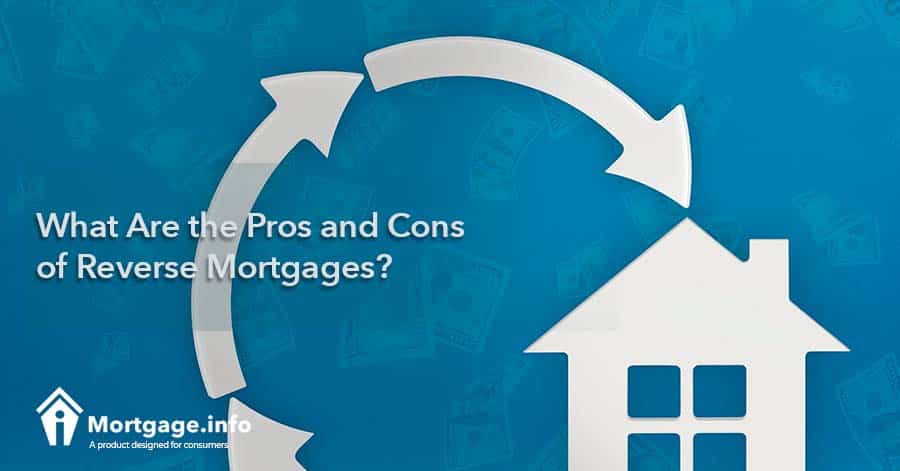
When the reverse mortgage first came out, there were many naysayers about the whole process. Since then, however, many people view the program in a much better light. Just like a standard mortgage, however, there are reverse mortgage pros and cons you should know about in order to make the right decision for yourself.
What are the Pros of the Reverse Mortgage?
If you think about the largest asset in your life, you probably think of your home, right? That is the largest benefit of the reverse mortgage. You get to make your most prized asset liquid without selling the home. In a sense, you get your cake and get to eat it too! You get to see the liquidity of your home and live comfortably in retirement (you have to be at least 62 years old to obtain it) without worrying about your finances.
An obvious benefit of this program is that you do not have to make any payments. In fact, this process works backward – the bank pays you. Some people use the program to pay off a small existing mortgage on their home or just to have more income during their senior years. Regardless of how you use the funds, you do not have to worry about payments until you sell the home or the people that inherit your home sell it.
Some people believe that you give up ownership of your home in exchange for a reverse mortgage, but this is not true. Just like any other mortgage program, the lender places a lien on your property. All that this means is that the lender gets paid off before anyone else does. This would be the same scenario if you had a standard mortgage on the home and you sold it; the lender gets paid before you see any proceeds from the sale of the home.
An incredible benefit, that again many people are mistaken about, is the fact that if you or the people that inherit your home were to sell the home for less than the value of the mortgage, you are not liable for the difference. This leaves many elderly people with the peace of mind that the people that will inherit their belongings will not be in financial distress as a result of a loan you took out. The reverse mortgage is a non-recourse loan, which simply means no one will owe more than the property is worth at the time of the sale.
What are the Cons of the Reverse Mortgage?
One of the largest cons of the reverse mortgage is the costs that the program entails. Generally, the fees are much higher than a standard loan program. This is because lenders charge fees in addition to the interest. The fees vary from lender to lender but might include origination fees, appraisal costs, title fees, and mortgage insurance fees. Since you do not make payments on the loan, everything is due at the sale of the home, which can significantly add onto the cost of the loan.
Another con is the fact that you have to live in the home. This becomes a problem when you are old enough that you need a full-time care facility. If you must leave your home for a period longer than 12 months, you must sell the home and pay the reverse mortgage back.
Some people are under the assumption that they do not have to keep up with the taxes or homeowner’s insurance on a home even after securing a reverse mortgage. The opposite is true, though. You have to be able to afford the taxes on the property in order to keep it in good standing. If you default on the taxes, the county can have first lien on your property, which leaves the bank that paid you already in second lien position and generally without payment. The lender will be very strict when determining your ability to afford your taxes in order to avoid this type of situation.
Sometimes it can be tricky to get a property qualified for a reverse mortgage as well. Because the FHA runs the program, they have the final say in which properties fit the requirements. If the property does not receive FHA approval, which is the case for certain condominiums, manufactured, and mobile homes, then you cannot take out a reverse mortgage.
Last, but not least, you can only use the reverse mortgage on your primary residence. This means if you have a vacation home or a second home, even if you own it completely, you cannot take any money out of the equity unless you take out a standard home equity loan or sell the property altogether.
Weighing the Reverse Mortgage Pros and Cons
Deciding whether or not the reverse mortgage pros and cons are worth it is really a personal decision. Talk with your family and/or a financial professional to determine if it is the right choice for you. If you have sufficient equity in your home; your home can receive FHA approval; and you have the ability to keep the home up on your own, it is a great way to age in place, which is what most people opt to do today.
The reverse mortgage helps many people fulfill their final wishes in their senior years. If you wish to stay in your home, consider this loan program with a reputable lender to help you enjoy your golden years.
